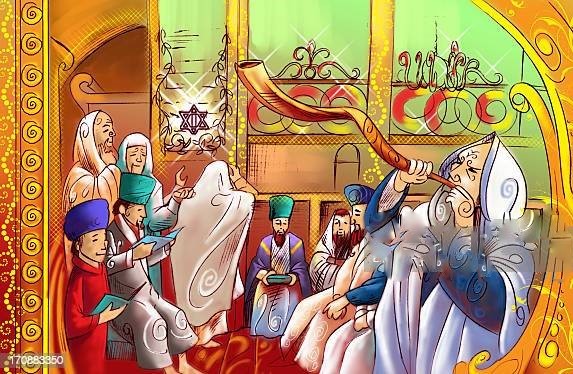TIFERET: YESHIVAT HAVERIM – BABYLONIAN TALMUD p60

Rabha saw that Abayi was (one Friday) looking toward the east (to calculate the duration of
twilight). Said he to him: “Dost thou think the masters spoke of the sky in the east? They spoke
of an object in the east that reflects the red sky (of the west), like a window (placed eastward of
the setting sun).
“It takes one to walk half a mile.” Said R. Hanina: “If one wishes to know the time according to
R. Nehemiah’s calculation, he should leave the sun (see it set) on the top of Karmel (a certain
mountain peak on the sea-coast), go down, dive into the sea, and go up (the mountain) again;
this will give him the exact time.” R. Jehudah, however, in the name of Samuel said: (To know
the exact time of twilight may be fixed thus:) “If only one star (can be seen in the sky), it is yet
day; if two stars, it is twilight; three stars, it is night.” And so also we have learned plainly in a
Boraitha with the addition: Said R. Jose: The stars mentioned do not mean the big stars, that can
be seen in daytime, and not the small stars, which cannot easily be seen at night, but stars of
medium size.
R. Jose b. R. Zebhida said: If one (unintentionally) performs work on both times of twilight
(Friday and Sabbath), he must certainly bring a sin-offering (because at one of both times it was
certainly Sabbath).
Rabba said to his servant: “You, who are not an expert in the scholarly calculation of time, must
light the Sabbath lamp when you see the (last rays of the) sun on top of the trees. In cloudy
weather how shall it be? (The lamp must be lit) in the city when the hens go to roost; in the
field, when the ravens fly to roost or when the mallow shrub 2 (inclines its head to the west).
The rabbis taught: Six times was the signal blown on Friday: the first time to stop work in the
field, the second to stop it in the city and in the stores, the third time to light the lamps. So said R. Nathan. R. Jehudah the Prince says that the third time is sounded to take off the phylacteries. Then (the
beadle) waits about as long as is required to bake a small fish, or for bread to cleave to the oven,
and he sounds again the three tones 1 of the signal in succession for the Sabbath (that is already
come). R. Simeon b. Gamaliel said: “What shall we do with the Babylonians? They sound the
signal first, and then blow the trumpet; from the moment the trumpet is sounded they cease
work.” They do so because it is with them a matter of inherited custom.
 HALF REDUCTION OF FLOW IN THE INNER LEFT COURT FOR GREATER DISCLOSURE OF THE UPPER FORCE
HALF REDUCTION OF FLOW IN THE INNER LEFT COURT FOR GREATER DISCLOSURE OF THE UPPER FORCE WEDNESDAY PRAYER: KETER-SHACHARIT שַחֲרִית MORNING PRAYER
WEDNESDAY PRAYER: KETER-SHACHARIT שַחֲרִית MORNING PRAYER WEDNESDAY PRAYER: KETER-TIKKUN CHATZOT תקון חצות-TIKKUN RACHEL & TIKKUN LEAH
WEDNESDAY PRAYER: KETER-TIKKUN CHATZOT תקון חצות-TIKKUN RACHEL & TIKKUN LEAH